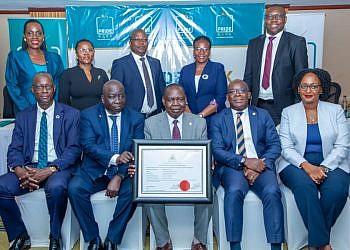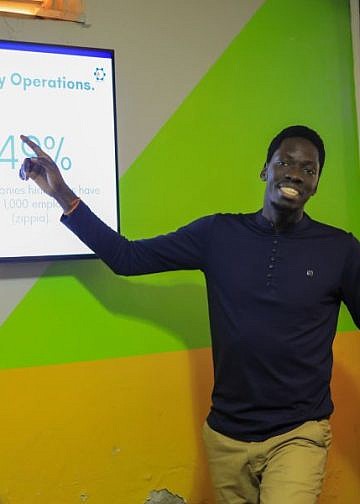Finance Trust Bank has prepared at least 2000 women to benefit from World Bank’s $217 million (shs805 billion) project named Generating Growth Opportunities and Productivity for Women Enterprises(GROW) aimed at supporting women entrepreneurs in the country.
On Friday, the women were trained in financial literacy by financial experts but also got insights from women entrepreneurs who have successfully navigated challenges in Uganda’s business landscape to motivate fellow women.
“As women you have been brainwashed by society which gave you roles that you belong to the kitchen and can’t do business . However, research shows women are better managers than men. Whereas you are emotional, you can actually use that emotion to become better leaders,” Prof. Waswa Balunywa, former MUBS principal told the women who had gathered at UMA multi-purpose hall in Kampala.
Prof. Balunywa, who is also the founder of Balunywa Foundation and Balunywa Leadership Academy said whereas women have been wired by society to believe they are inferior, this is not true.
“Society has told something you are not but you can leave that fixed mindset and believe in yourselves to succeed. The only difference between men and women is only physical and biological.”
Finance Trust Bank Managing Director, Annet Nakawunde said the bank which puts women first was chosen by the Ministry of Gender, Labour and Social Development to implement the GROW project.
“Whereas the bank always holds financial literacy sessions for women, this was particularly tailored at preparing women for the GROW project. We found it relevant that we cant give this financial assistance to women without preparing them,” Nakawunde said.
“We are focusing mainly on mindset change for these women. We want to change their mindset about business, being able to acquire loans and pay back, making financial decisions and many others. We want them to be able to market their products effectively.”
She said as part of the GROW project they are to give out loans between shs4 million and shs200 million at an interest of 10.5% to women to support their enterprises.
The project that runs up to 2027 seeks to see 35000 micro and 4000 small women enterprises transition to small and medium enterprises respectively.
The project will also see 60,000 female owned enterprises including 3000 refugee owned businesses benefit and to this, 280,000 women entrepreneurs and employees including 42000 refugees.
It will also help work on increased access to finance for women entrepreneurs to transition from micro enterprises to small and medium enterprises but also enable enabling inclusive infrastructure through common-users’ facilities and childcare.








































